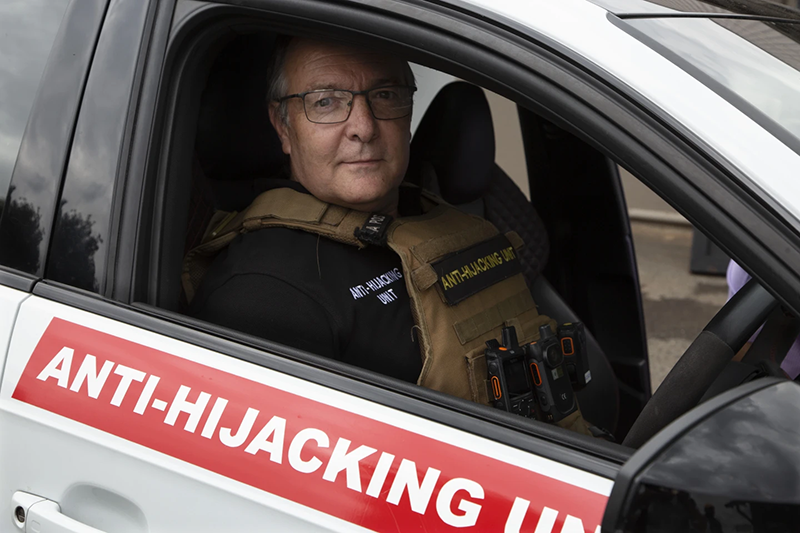- News
- No Comment
As police lose the war on crime in South Africa, private security companies step in

By Associated Press
JOHANNESBURG: Thamsanqa Mothobi was going about his life in Johannesburg when he was carjacked and taken to an informal settlement where robbers accessed his mobile banking apps.
“They had guns and demanded the PIN codes for my apps. They increased the withdrawal limits in my accounts and emptied them. I was only released in the early hours of the morning,” the father of three said, adding that his one comfort was that he was not killed.
It’s an all-too-common story in South Africa, a country that in the past year has seen an average of 75 killings and 400 robberies with aggravating circumstances every day, according to official statistics. While it may be Africa’s most developed country, it also has one of the highest violent crime rates in the world.
Experts have warned that the South African police are losing the battle against crime — and that has led those citizens who can afford it to turn to a booming private security industry.
“It’s not getting better, it is getting worse,” said Anton Koen, a former police officer who now runs a private security firm that specializes in tracking and recovering hijacked and stolen vehicles. “The murder rate is the highest in 20 years, violence is getting worse because our justice system seems to be failing us, the public of South Africa.”
There are more than 2.7 million registered private security officers in the country, according to the Private Security Industry Regulatory Authority, making South Africa’s security industry one of the largest in the world. That compares with fewer than 150,000 police officers for the country’s 62 million people.
Private security companies earn a monthly fee for patrolling neighborhoods and providing armed response to their clients’ alarm systems. They also offer tracking and car recovery services, which often results in them getting involved in high-speed chases of car thieves and hijackers.
Figures from PSIRA show that the number of security businesses in South Africa grew by 43% in the past decade, while the number of registered security officers has increased by 44%.
Associated Press journalists accompanied private security officers on patrols around suburbs in east Johannesburg, where it was evident they were performing the role of the police in many circumstances.
Koen was armed with an assault rifle and wore a bulletproof vest as he patrolled in his response vehicle, which is fitted with cameras and has car registration identification technology that can pick up suspected stolen vehicles.
During one of the patrols, Koen sped to where two suspects had been apprehended by other private security personnel after a vehicle they were traveling in was linked to burglaries and armed robberies. The suspects were handed over at a nearby police station, which typically happens to those apprehended by security firms.
But staying safe and avoiding crime is another example of the stark inequality that afflicts South Africa, as only the wealthy few can afford private security services. The majority of South Africans must still rely on an under-resourced and struggling police force.
More than 580,000 private security guards are currently active and employed — more than the police and army combined — according to figures from PSIRA.
“People with money make up a very small percentage of South Africa. That means that the vast majority of South Africans don’t really benefit from this security industry,” said Chad Thomas, an organized crime expert who has worked more than 30 years in law enforcement and now in private security.
“If you live in a traditional township environment, or if you live in an informal settlement, it is few and far between that you will see security patrols in those areas because they don’t have paying customers.”
Even those who are lucky enough to have private protection can’t always be sure of safety.
In November, a South African government minister and her bodyguards were held up at gunpoint on a highway and robbed of money and their cellphones. The two bodyguards were made to lie on the ground while the robbers ransacked their vehicle and stole their police-issued guns.
It was a reminder that as long as violence is so prevalent in South Africa, everyone is in danger.
Thomas, like many, ties the high levels of violent crime in South Africa to anger over the country’s deep problems of poverty.
